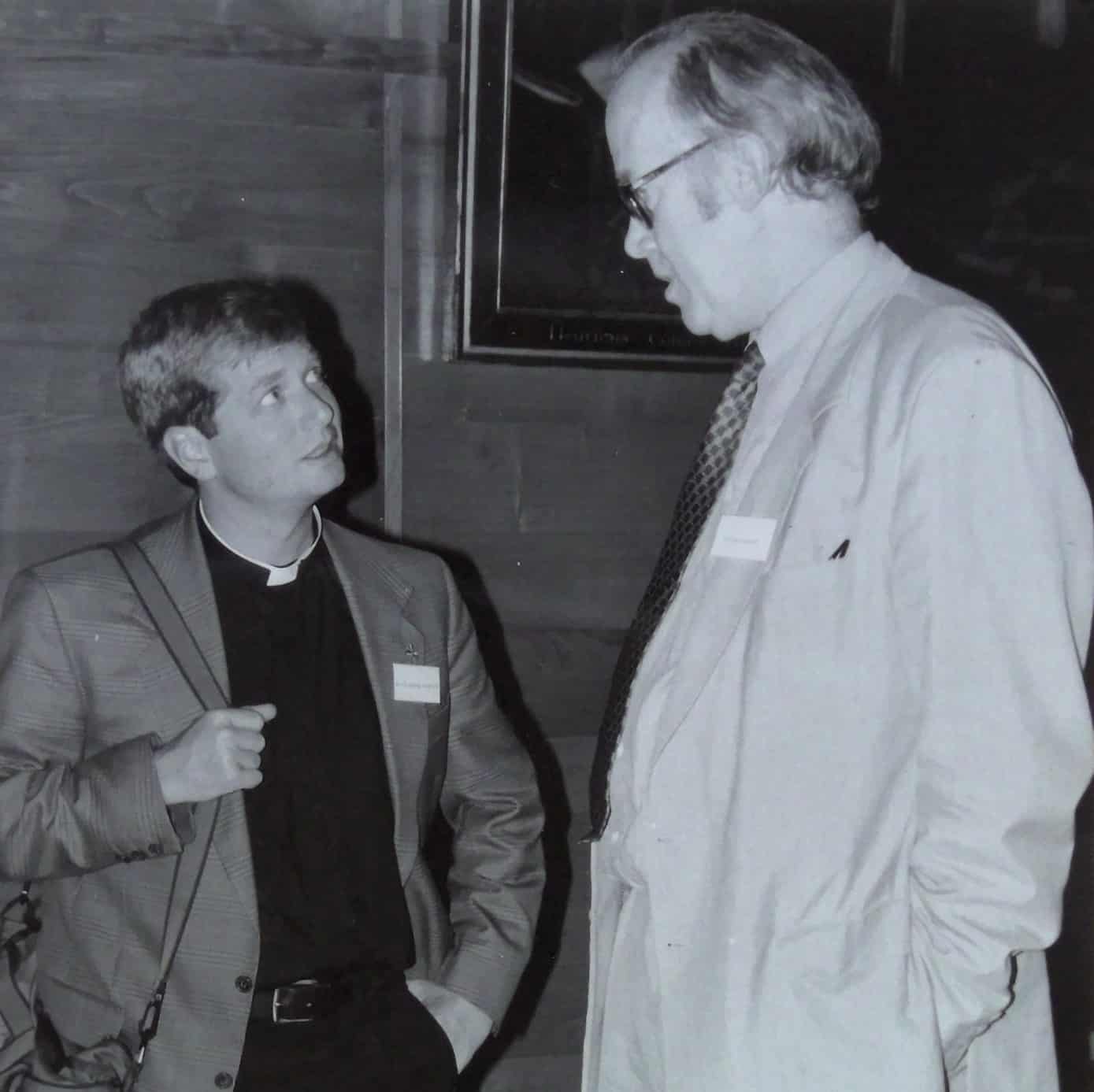
Esteemed Catholic bioethicist Professor Luke Gormally, former director of the Linacre Centre for Healthcare Ethics in the UK and member of the Pontifical Academy for Life, reposed in the Lord on 30 April, aged 73.
Professor Gormally was a leading voice in Anglophone bioethics for more than 50 years, having worked for the well-respected Linacre Centre between 1977 and 2007, first as research officer, then director, and then senior research fellow.
Between 2011 and 2016 he was governor of the centre after it relocated to Oxford University and was renamed the Anscombe Centre, after Professor Gormally’s mother-in-law, the Catholic philosopher Elizabeth Anscombe.
The Archbishop of Sydney, Anthony Fisher OP, worked closely with Professor Gormally at the Linacre Centre in the 1990s while he undertook doctoral studies at Oxford University.
“As is obvious from the photo, he was a giant. He was the biggest man I ever knew. It meant when he came into a room he completely dominated it because of his scale—he would have made George Pell look short,” Archbishop Fisher said of his friend and mentor.
“As giants go, he was a pretty gentle giant. He obviously had a great intellect. Whether it was the match for his wife I don’t know, as both were serious philosophers.
“I always found him very generous and encouraging. His centre, that he effectively established and directed for many years, was really the premier Catholic bioethics centre probably in the world, certainly in Europe, jointly run by the British and Irish bishops’ conferences.
“It’s something they should be very proud of.”
Professor Gormally was an active participant in Anglophone bioethical debates for decades, arguing for Catholic ethical positions in the public arena during a time when the “culture of death” was embedding itself across the Western world.
He spent much of his professional life writing advices and submissions for parliament and the British and Irish bishops on euthanasia, care of the dependent elderly, reproductive technologies, abortion and other life issues.
“He was also a member of the Pontifical Academy for Life for many years,” Archbishop Fisher said.
“I think probably increasingly disappointed with the academy in recent years, but in its golden age under Cardinal Elio Sgreccia (2005-2008) he was always a significant figure at its meetings.”
In his retirement Professor Gormally and his wife, Dr Mary Geach, jointly edited and published several volumes of Elizabeth Anscombe’s papers, bringing her lesser-known work to a wider audience.
Through their efforts, “[Professor Anscombe] managed to be more prolific in her writing since she died than she was while alive, which is a very remarkable arrangement,” Archbishop Fisher said.
Professor Gormally suffered from health problems in later life due to his enormous stature, but maintained a firm Catholic faith and evangelical spirit.
“He was involved in the Neocatechumenal Way, which you don’t often associate with top-flight Catholic philosophers,” Archbishop Fisher said.
“But there was this other side of him that was very evangelical and concerned about passing the faith on to the next generation.”
Dr Bernadette Tobin, director of the Plunkett Centre for Ethics at St Vincent’s Hospital, said Professor Gormally was “an admirable academic.”
“He contributed his own thinking to the development and defence of bioethics in the Catholic tradition,” she said.
“In this regard, his monograph Why the Select Committee on Medical Ethics of the House of Lords unanimously rejected the legalisation of euthanasia, which was published by the Plunkett Centre here in Sydney over 25 years ago, is still one of the most lucid and compelling accounts of the arguments, for and against, this socially-controversial practice.
“In addition, Luke ensured that as many as possible of the contributions of the great English Catholic philosopher Elizabeth Anscombe, his mother in law, would be available for posterity.
“Luke will be greatly missed by all of us who knew him, worked with him, and admired him. May he rest in peace.”
British Bishop John Sherrington, auxiliary bishop of the Diocese of Westminster and lead bishop for life issues, praised Professor Gormally after his passing.
“Luke dedicated his life to building up the Linacre Centre to ensure that it made a very positive contribution to bioethical debate in society,” Bishop Sherrington said.
“Since that time, the centre has provided a critical Catholic voice to defend church teaching and argue against counter positions in the public arena. It has served the Catholic community and the bishops well for almost fifty years.
“I pray that Luke will rest in peace and rise in glory. May the Lord welcome home his faithful servant.”
